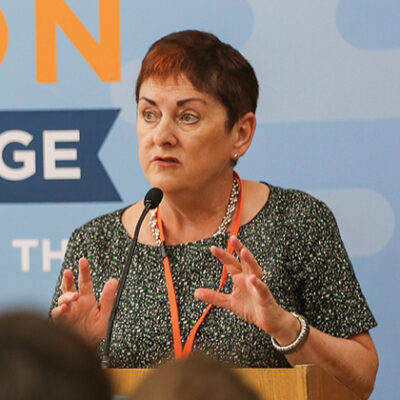An academy trust ordered by government to find savings to balance the books has slashed its chief executive’s £225,000 salary by more than a third, accounts show.
This comes as Schools Week analysis shows executive pay continuing to rise among large trusts that have previously been warned over high pay by government. Yet some leaders have seen pay stagnate, or even cut.
The Rodillian Multi-Academy Trust, which runs four schools in Yorkshire, paid its chief executive Andy Goulty between £225,000 and £230,000 in 2019-20. It puts him in the top 20 best-paid academy bosses in the country.
But its latest accounts show he received between £140,000 and £145,000 in the year to September 2021 – a cut of at least £80,000.
The trust did not respond to repeated requests for comment about the drastic fall in pay.
It takes Goulty’s pay to below the £150,000 threshold which has previously triggered government warning letters demanding trusts justify pay levels, as part of a clampdown on runaway salaries.
The cut also follows years of Education and Skills Funding Agency scrutiny over the trust’s finances.
Trust received financial warnings in 2018 and 2019
A 2017 probe found it paid Goulty almost £8,000 to spend 78 nights in a four-star hotel. ESFA was told this was because he worked late.
Rodillian then received a financial notice to improve in 2018 over failures in governance and balancing the books.
Goulty said at the time the trust had inherited deficits from two schools it was pressured to take on by government. Its 2018 accounts record a £1.4 million general fund deficit.
A second notice followed in 2019, ordering the trust to prove “all possible economies are being made” to balance budgets.
But the notice was lifted in September 2020. New accounts show last year’s surplus pushed reserves to £3.7 million after Rodillian “delivered economies”.
Rodillian marks a contrast to trends at ten of the largest trusts to release 2021 annual accounts so far that have previously been sent letters over CEO pay.
Schools Week analysis shows they handed leaders an average £4,500, or 2.6 per cent, pay rise. The mean salary was £175,500. It followed an average £5,000 hike the previous year.
Paul Tarn, chief executive of Delta Academies Trust, saw his remuneration rise by £20,000 to £225,000.
A spokesperson said all pay followed a “robust review and market benchmarking process”, and Tarn’s previous hike had not exceeded inflation. “This takes into account their excellent performance as leaders of one of the largest and most financially efficient trusts in the country.”
The 51-school trust was also the largest on the list, expanded last year and records above-average results.
Leaders see pay rise by at least £20k
Two other trust leaders, Greenwood Academies Trust’s Wayne Norrie and Cabot Learning Federation’s Steven Taylor, have seen minimum pay bands jump at least £20,000 over two years.
A Greenwood spokesperson said Norrie’s recent raise to at least £190,000 brought it “in line with rigorous national benchmarking and cost of living increases nationally”.
The “excellent” leader of 37 schools had also “consistently refused incremental increases” as CEO since 2016, and the pay took government guidance into account.

Taylor’s minimum pay band rose £10,000 in both 2019 and 2020 to £170,000. Paul Olomolaiye, chair of the CLF board, said it conducted robust analysis annually to ensure that pay reflected “national expectations”, official guidance and individual responsibilities and performance.
He noted the head of a single London secondary could earn £125,000, whereas the trust oversees more than 12,000 pupils and 2,000 staff. “The CLF board ensures its approach to pay is transparent, proportionate and justifiable.”
Taylor had not received a more recent rise in 2021 “in line with government guidelines for teachers’ salaries”, he added.
Dr Mary Bousted, joint general secretary of the National Education Union, said the key question was whether trusts boosting executive pay were also handing staff fair rises or were imposing freezes at the time.
“Trusts would really have to justify awarding disproportionate pay rises to the executive layer and not staff,” said Bousted. “Teachers can be the most hard-working, and research shows the strongest way to raise standards is middle leaders, often earning much less than CEOs.”









The article by Tom Belger dated 8 January 2022, quoting an increase of salary for the CEO of Greenwood Academy Trust, has left me feeling quite angry.
Greenwood Academy Trust currently “runs” Houghton Regis Academy in Houghton Regis. The school will close in the near future to be replaced by a new build with a new Academy Trust.
Having worked in finance roles in the private, university and other sectors, I find it astonishing that CEO’s of Academies can be paid such extortionate (no pun intended) amounts. Do these CEO’s also have other paid work too?
It would have been more pleasing to see Houghton Regis Academy employ more staff to develop a more consistent, caring, nurturing and supportive environment for our children and young people.